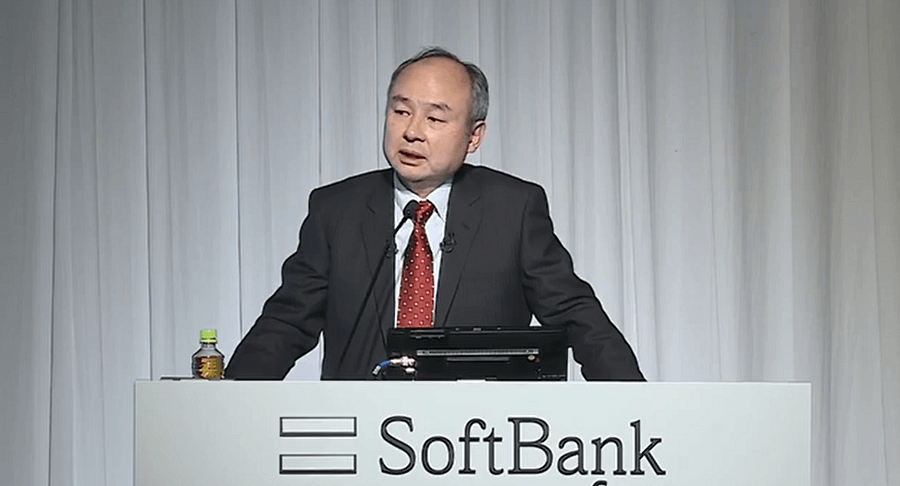In recent months, the SoftBank Vision Fund has been subjected to a series of headlines about strategic gaffes and devastating bets. It seems that the Japanese conglomerate and investment firm is taking cognizance of this scrutiny and acting cautious by painfully writing down investments that nearly imploded during the pandemic.
On Tuesday, SoftBank announced it has sold about $2 billion worth of Uber shares, in a desperate bid to capitalize on the surge in the ride-hailing company’s value. According to a filing with the U.S. Securities and Exchange Commission (SEC), SoftBank Vision Fund has sold 38 million shares for $53.46 apiece. The Tokyo-based company still holds about 184.2 million shares, according to the filing, worth about $10 billion at current prices.
SoftBank Vision Fund’s historic loss led by poor investment in Uber
The Vision Fund, launched by SoftBank founder Masayoshi Son in 2017, invested heavily in ride-hailing platforms across the globe. Its investment portfolio boasted of ride-hailing monopolies, including Uber, India’s Ola, Singapore’s Grab and China’s Didi Chuxing. Its core philosophy is to make massive infusions into a company until it leaves competitors in the dust and consumers with no choice. This philosophy finally misfired after the botched public offering of WeWork and Uber.

The $100 billion Vision Fund went from being SoftBank Group’s main contributor to profit a year ago to its biggest drag on earnings. It had to take a $400 million hit on its Uber investment in the March quarter last year, given the stock’s 6% decline during that period. Uber’s IPO flop in 2019 and the coronavirus outbreak that brought the demand for ride-hailing to down to 60% further added to its woes. By the end of March, Uber’s share price had fallen below $15, from $42 on its first day of trading in May 2019.
SoftBank Vision Fund’s core philosophy is to make massive infusions into a company until it leaves competitors in the dust and consumers with no choice. This philosophy finally misfired after the botched public offering of WeWork and Uber Technologies Inc.
At the same time, the company’s food delivery business grew at a massive rate during the pandemic, and in fact, generated more revenue than its flagship ride-hailing business. Executives at Uber hinted that the delivery business could be as big as or bigger than ride-hailing once the economic downturn is over. Uber has pledged to be profitable on an adjusted business by the end of this year.
Uber causing turmoil for the Vision Fund
Uber’s valuation was at an all-time high when SoftBank Group’s Vision Fund poured billions of dollars. The fund bought $8 billion worth of Uber’s secondary shares from early investors and employees in 2018 as a discount valuation. Additionally, it invested $1.3 billion directly into Uber. At one point, this investment valued Uber at roughly $70 billion.
For the ride-hailing startup, it hasn’t exactly been a smooth ride when it comes to management problems. The ride-hailing company was heavily criticized for its toxic culture. There were also instances of sexual harassment. In August 2017, Dara Khosrowshahi joined as chief executive and tried to address a lot of issues. The company exited from several markets including China. It also sold the Uber Eats operations in India to Zomato.
Uber’s stock had declined dramatically since its failed IPO in May 2019. More than two years after SoftBank’s massive infusions, Uber’s market value is down to $47 billion from a peak of $74 billion. The turmoil doesn’t end here. The ride-hailing company is still struggling to become profitable, let alone monopolize its business in one geography.
The market capitalization of one of Wall Street’s most hallowed startups of all time is down 21.9% since its listing on NASDAQ in May 2019.
It went from being featured on the Vision Fund’s hallway of marquee investments to one of its worst bets. The recent announcement of the Softbank Vision Fund selling Uber shares worth $2 billion has been cheered by investors. But it’s a long way from home.
There’s much that needs to be done, and Son is aware that it begins with share buybacks and stronger governance.
SoftBank’s Vision Fund is designed to transform startups into massive companies. SoftBank Group’s shares rose less than 1% after the announcement on Tuesday.
Subscribe to the nation’s fastest-growing CEO magazine to get the latest business news delivered to your inbox.






